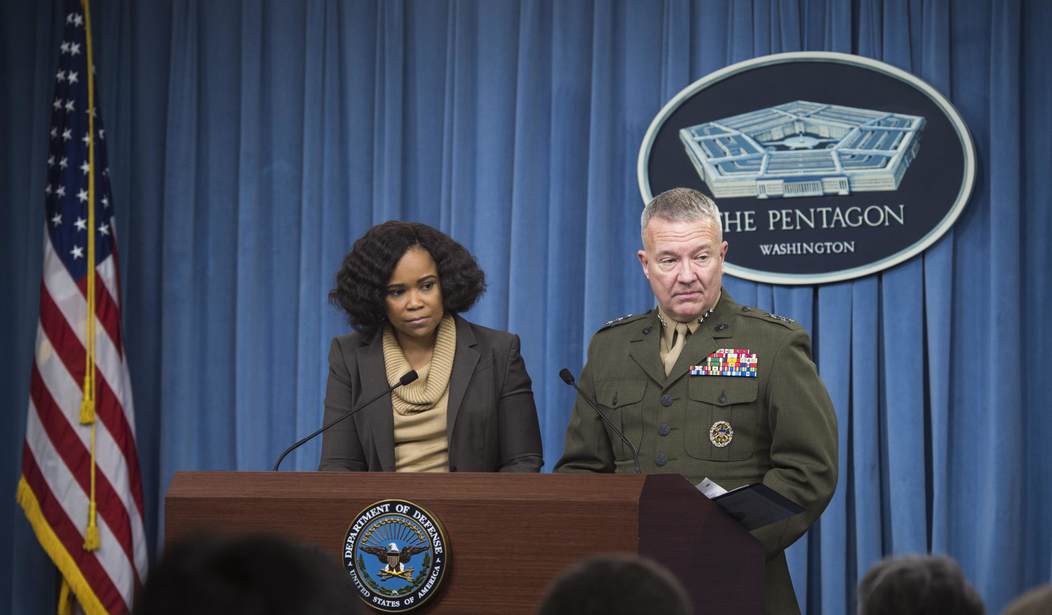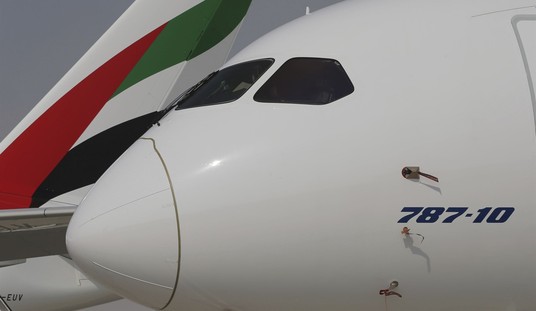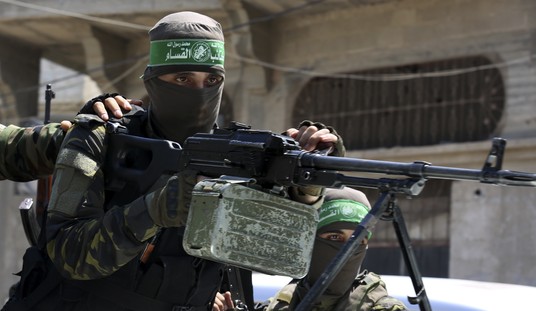ARLINGTON, Va. — The Pentagon said today that officials believe there is “probably some form of ISIS affiliation” with the militants who killed four U.S. Green Berets in Niger last week, and highlighted local self-radicalized fighters in West Africa as a “positive sign” that the “core” caliphate territory of the Islamic State is withering.
Staff Sgt. Bryan C. Black, 35, of Puyallup, Wash., Staff Sgt. Jeremiah W. Johnson, 39, of Springboro, Ohio, and Staff Sgt. Dustin M. Wright, 29, of Lyons, Ga., were killed Oct. 4 as three of a dozen U.S. soldiers accompanying a few dozen Nigerien soldiers on a routine patrol.
Two days later, the body of another American who had been listed as missing after the attack was recovered by Nigerien forces: Sgt. La David T. Johnson, 25, of Miami Gardens, Fla.
Joint Staff Director Lt. Gen. Kenneth McKenzie Jr. said the group that was attacked “had actually done 29 patrols without contact over the previous six months or so; no indication that this was going to occur.”
“I would say that what was actually very positive about it was the fact that they were able to have close air support overhead about 30 minutes after first contact, which is pretty impressive,” he added. “What’s even more impressive is the fact that that was our French allies that were able to provide that air support.”
McKenzie said the half-hour response time was “pretty good time by anybody’s standard — patrol is not designed to be a combat patrol.”
“I would say that we were able to get casualties and ultimately fatalities out quickly, but I’m not going to give you the specific timeline for that,” he said. “We’re still investigating and coming to a final conclusion on those details.”
Both al-Qaeda and ISIS operate in the area. In March, Niger declared a state of emergency due to the Mali border threat; this was extended last month. Niger announced offensive operations in Tillabéri this June.
“We’ll look at what we do in order to support forces that are still going to go out and train with our Nigerian partners, and we’ll pre-position in order to take into account this new factor in the theater,” McKenzie said, adding that “this is all, I would argue, a natural product of the fact that they’re being crushed in the core caliphate, trying to go to other places, trying to find the cold corner of the room. And so I think this is — while this particular instance is tragic, it’s also illustrative of the general success of the campaign.”
The general noted it’s “easier to actually stop resources than it is people” going from Syria to Africa, and “I think we’re having significant success doing that; probably not perfect, because perfection is probably not an attainable goal.”
“But we strive very hard to prevent that,” he said. “Now, what you can’t prevent is local franchisement. You know, self-enabled radicalization. That’s a harder task to prevent and we’re going to continue to work at that. But I think that we’re not seeing a lot of flow out of the core caliphate because most of those people are dead now.”
“I’m sure some personnel have moved. We’re able — we’re stopping I think the vast majority of that. I’m not going to tell you that we’re going to be able to stop everyone. But, you know, if they go to the cold corner of the room that will rapidly become the hot corner of the room, we’ll turn the searchlight on them, and they’ll have the option of either surrendering or dying in their new franchise. It’s all the same to us.”
Still, the general said he’d be “very surprised” if the Niger attackers were foreign fighters from Syria.
“I would say these are probably self-radicalized,” McKenzie continued. “But there is also some minimal flow of people across the divide. I think it’s much — much, much, much less than it was a year ago, and much, much less than it was two years ago because a critical part of our strategy is preventing that flow.”








Join the conversation as a VIP Member